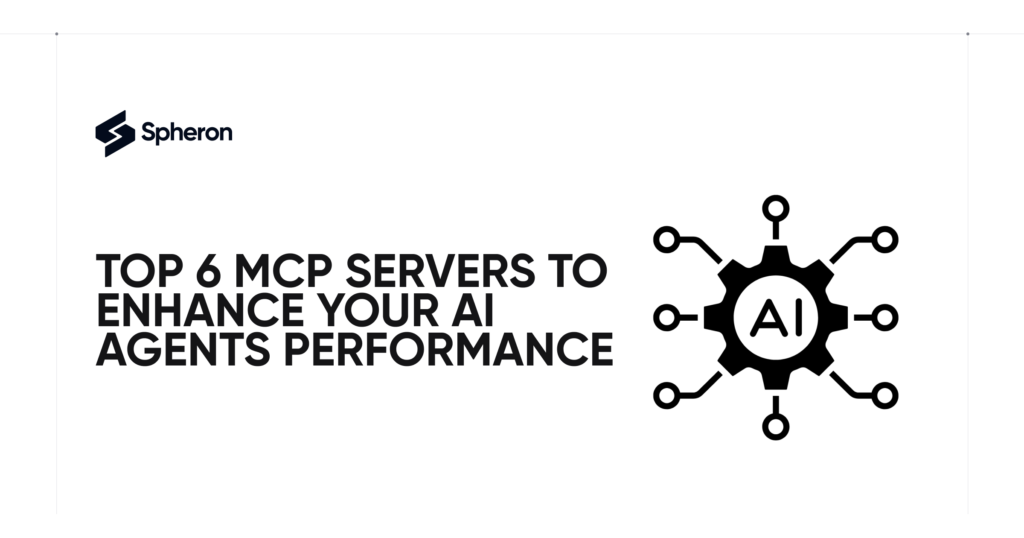One of the most significant challenges developers face is the seamless integration of new AI capabilities. The traditional approach of manually slogging through documentation and implementing complex code can be time-consuming and error-prone. Fortunately, MCP has emerged as a game-changing solution, offering plug-and-play functionality that can dramatically enhance AI agents without the usual implementation headaches.
Understanding MCP Servers: The AI Agent’s Secret Weapon
MCP servers function as intermediaries that enable AI agents to access specialized capabilities through standardized protocols. Think of them as pre-built modules that can be connected to your AI agent to instantly grant new abilities—whether that’s web scraping, browser automation, search functionality, or step-by-step reasoning. Rather than building these capabilities from scratch, developers can leverage MCP servers to quickly expand their agents’ functionality.
The beauty of MCP servers lies in their abstraction of complexity. Instead of diving deep into the implementation details of various APIs and services, developers can simply connect their agents to these servers and immediately begin utilizing new capabilities through clean, consistent interfaces.
Five Game-Changing MCP Servers for AI Agent Development
1. Spheron’s MCP Server: AI Infrastructure Independence
Spheron’s innovative MCP server implementation represents a significant advancement in the MCP ecosystem. This development represents a major step toward true AI infrastructure independence, allowing AI agents to manage their compute resources without human intervention.
Spheron’s MCP server creates a direct bridge between AI agents and Spheron’s decentralized compute network, enabling agents operating on the Base blockchain to:
-
Deploy compute resources on demand through smart contracts
-
Monitor these resources in real-time
-
Manage entire deployment lifecycles autonomously
-
Run cutting-edge AI models like DeepSeek, Stable Diffusion, and WAN on Spheron’s decentralized network
This implementation follows the standard Model Context Protocol, ensuring compatibility with the broader MCP ecosystem while enabling AI systems to break free from centralized infrastructure dependencies. By allowing agents to deploy, monitor, and scale their infrastructure automatically, Spheron’s MCP server represents a significant advancement in autonomous AI operations.
The implications are profound: AI systems can now make decisions about their computational needs, allocate resources as required, and manage infrastructure independently. This self-management capability reduces reliance on human operators for routine scaling and deployment tasks, potentially accelerating AI adoption across industries where infrastructure management has been a bottleneck.
Developers interested in implementing this capability with their own AI agents can access Spheron’s GitHub repository at github.com/spheronFdn/spheron-mcp-plugin
2. Firecrawl MCP Server: Web Scraping Without the Hassle
Developer: Firecrawl
Source: Available on GitHub
Firecrawl MCP Server specializes in web scraping operations, allowing AI agents to collect and process web data without complex custom implementations. This server enables agents to:
-
Extract content from webpages
-
Navigate through websites systematically
-
Parse extracted data into clean, structured formats (JSON, etc.)
The implementation showcases robust error handling with configurable retry logic, timeout settings, and response validation. For example, the scrapeWebsite function handles connection issues and rate limiting gracefully, making web data collection more reliable.
async function scrapeWebsite(url, options = {}) {
// Merge configurations with defaults
const config = {
timeout: options.timeout || DEFAULT_CONFIG.TIMEOUT,
maxRetries: options.maxRetries || DEFAULT_CONFIG.MAX_RETRIES,
// Additional settings...
};
// Retry logic implementation
let attempts = 0;
while (attempts <= config.maxRetries) {
try {
// Scraping logic
const result = await firecrawl.scrape(scrapeOptions);
return processScrapedData(result.data);
} catch (error) {
// Error handling with specific error types
// Retry logic
}
}
}
This level of error handling illustrates the production-readiness of the Firecrawl MCP implementation, making it suitable for real-world applications where network reliability can be an issue.
3. Browserbase MCP Server: Browser Automation at Your Agent’s Fingertips
Developer: Browserbase
Browser automation has traditionally been complex to implement, but Browserbase MCP Server makes it accessible for AI agents. This server enables:
The implementation provides sophisticated session management with a configurable viewport, headless mode options, and retry mechanisms for handling session failures.
async function capturePage(url, options = {}) {
// Configuration with sensible defaults
const config = {
viewport: options.viewport || DEFAULT_CONFIG.VIEWPORT,
headless: options.headless !== false,
// Additional settings...
};
// Session management
let session;
try {
session = await browserbase.createSession({
timeout: config.timeout,
headless: config.headless,
viewport: config.viewport
});
// Navigation and screenshot logic
} catch (error) {
// Comprehensive error handling
} finally {
// Proper session cleanup
if (session) {
await cleanupSession(session);
}
}
}
This implementation demonstrates attention to resource management (cleaning up browser sessions) and configuration flexibility, allowing agents to adapt browser behavior based on specific requirements.
4. Opik MCP Server: Tracing and Monitoring for AI Transparency
Developer: Comet
As AI agents become more complex, understanding their behavior becomes increasingly important. Opik MCP Server addresses this need by providing comprehensive tracing and monitoring capabilities:
-
Project creation and management
-
Action tracing with detailed logging
-
Statistical analysis of AI agent performance
The Python implementation showcases a clean, object-oriented approach with robust error handling and retry logic.
def trace_action(self, project_name: str, trace_name: str, metadata: Optional[Dict] = None) -> None:
"""Trace an action with error handling and metadata"""
project = self.create_project(project_name)
try:
trace = self.client.start_trace(project, trace_name)
start_time = time.time()
trace.log(f"Starting {trace_name} at {datetime.now().isoformat()}")
if metadata:
trace.log(f"Metadata: {metadata}")
yield trace # Allow context manager usage
duration = time.time() - start_time
trace.log(f"Completed in {duration:.2f} seconds")
trace.end()
except Exception as e:
# Proper error handling
if 'trace' in locals():
trace.log(f"Error: {str(e)}")
trace.end(status="failed")
raise
The context manager pattern (yield trace) demonstrates a modern Pythonic approach that makes tracing code blocks elegant and readable while ensuring proper trace finalization even when exceptions occur.
5. Brave MCP Server: Intelligent Search Capabilities
Developer: Brave
Search functionality is critical for AI agents that need to access information, and Brave MCP Server leverages the Brave Search API to provide comprehensive search capabilities:
-
Web search with configurable parameters
-
Result filtering and processing
-
Local search capabilities for private data
The implementation demonstrates thorough input validation and result processing:
async function searchWeb(query, options = {}) {
// Input validation
if (!query || typeof query !== 'string' || query.trim().length === 0) {
throw new Error('Invalid or empty search query provided');
}
// Retry logic for reliability
while (attempts <= config.maxRetries) {
try {
// Search implementation
const results = await brave.webSearch(searchParams);
// Result validation and processing
if (!results || !Array.isArray(results)) {
throw new Error('Invalid search results format');
}
return processSearchResults(results);
} catch (error) {
// Error handling with specific error types
}
}
}
The dedicated result processing function ensures that search results are consistently formatted regardless of variations in the API response, making it easier for AI agents to work with the data.
function processSearchResults(results) {
return results.map((result, index) => ({
id: result.id || index,
title: result.title || 'No title',
url: result.url || 'No URL',
snippet: result.snippet || result.description || 'No description',
timestamp: new Date().toISOString(),
source: result.source || 'unknown'
}));
}
6. Sequential Thinking MCP Server: Step-by-Step Problem Solving
Source Code: Avilable on Github
Complex problem-solving often requires breaking down issues into manageable steps. The Sequential Thinking MCP Server enables AI agents to approach problems methodically:
The Python implementation demonstrates a structured approach to problem-solving with configurable output formats.
def solve(self, problem: str, steps: bool = True, output_format: str = Config.DEFAULT_FORMAT) -> Union[List[str], str]:
"""
Solve a problem with sequential thinking steps
"""
try:
logger.info(f"Starting to solve: {problem}")
solution = self.thinker.solve(
problem=problem,
steps=steps,
max_steps=self.max_steps
)
if steps:
processed_steps = self._process_steps(solution, output_format)
return processed_steps
else:
result = self._process_result(solution, output_format)
return result
except Exception as e:
logger.error(f"Failed to solve problem '{problem}': {str(e)}")
raise
The implementation includes validation functions to verify the correctness of solutions, adding an extra layer of reliability:
def validate_solution(self, problem: str, solution: Union[List[str], str]) -> bool:
"""Validate the solution (basic implementation)"""
try:
if isinstance(solution, list):
final_step = solution[-1].lower()
# Basic check for algebraic problems
if '=' in problem and 'x =' in final_step:
return True
return bool(solution)
except Exception as e:
logger.warning(f"Solution validation failed: {str(e)}")
return False
Implementation Best Practices from the MCP Server Examples
Analyzing these MCP server implementations reveals several common patterns and best practices:
-
Robust Error Handling: All implementations include comprehensive error handling with retry logic for transient failures.
-
Configurable Defaults: Each server provides sensible defaults while allowing customization through optional parameters.
-
Input Validation: Thorough validation of inputs prevents downstream issues and provides clear error messages.
-
Resource Management: Proper cleanup of resources (like browser sessions) ensures efficient operation.
-
Consistent Response Processing: Standardized processing of responses makes integration with AI agents more straightforward.
Conclusion: The Future of AI Agent Development
MCP servers represent a significant evolution in AI agent development, moving from monolithic implementations to modular, capability-focused architectures. By leveraging these servers, developers can rapidly enhance their AI agents without diving deep into implementation details for each new capability.
The five MCP servers discussed—Firecrawl for web scraping, Browserbase for browser automation, Opik for tracing and monitoring, Brave for search capabilities, and Sequential Thinking for methodical problem-solving—demonstrate the breadth of functionality that can be added to AI agents through this approach.
As AI development continues to accelerate, we can expect to see an expanding ecosystem of MCP servers covering an even wider range of capabilities, from natural language processing to specialized domain knowledge. This modular approach will likely become the standard for building sophisticated AI agents, allowing developers to focus on agent logic and user experience rather than the implementation details of individual capabilities.
For AI agent developers looking to enhance their systems quickly and reliably, MCP servers offer a compelling path forward—plug-and-play AI capabilities that work.

